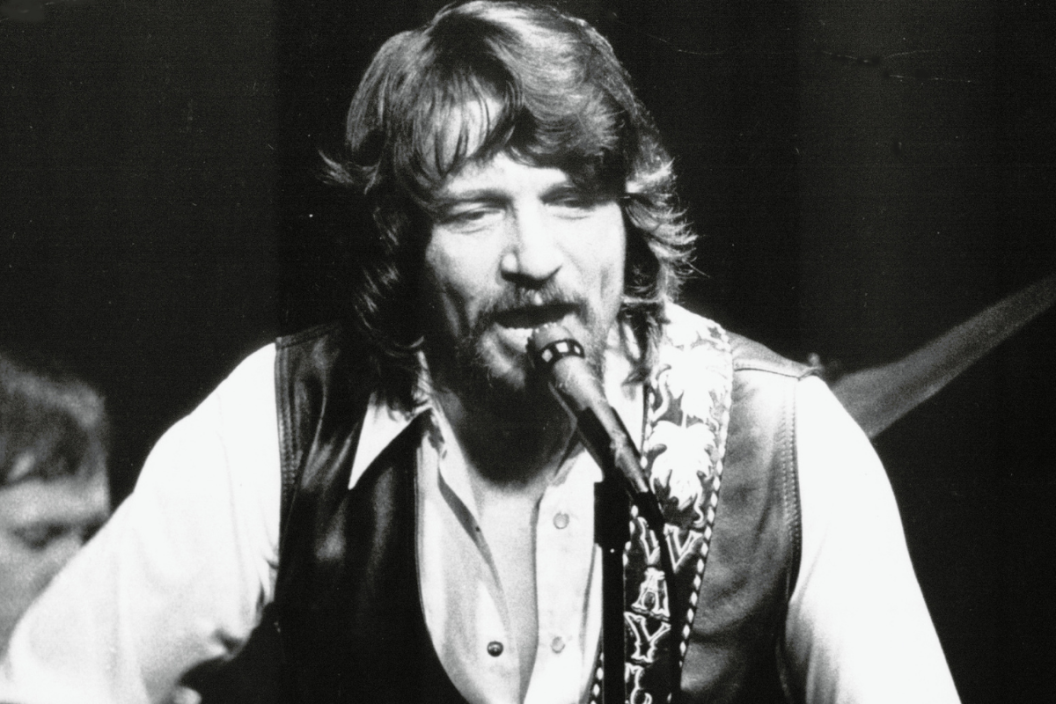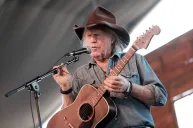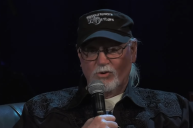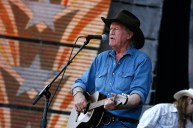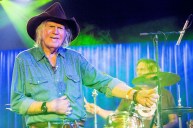One of the first big breaks for Texas-born songwriter Billy Joe Shaver came when Waylon Jennings cut multiple Shaver tracks for one of the most influential country albums of its time, 1973's Honky Tonk Heroes (RCA Victor).
Videos by Wide Open Country
Despite not being chosen as a single, the song "Honky Tonk Heroes" and its backstory stand out as prime examples of the outlaw country mindset. That sometimes overused term represents more than hard living or alternatives to the pop-friendly hits produced by Nashville tastemakers. Instead, the music made by this point in the '70s by Jennings, Shaver, Jessi Colter, Willie Nelson and others reflected hard-earned creative freedom that'd been absent from big-time country music.
https://youtu.be/0t2RNuTuDZw
As an outlaw, Jennings recorded songs of his choosing with his touring band the Waylors instead of the usual studio musician suspects. He also shared producer credits on Honky Tonk Heroes with Tompall Glaser, Ronny Light and Ken Mansfield.
As the story goes, Jennings promised several years earlier that he'd consider cutting some of Shaver's songs. After Shaver unsuccessfully tried to get Jennings' attention for six months, he showed up at RCA's Studio A with zero intention to take no for an answer.
"He came out of the control booth and he had a couple of bikers - bikers hung around with him a lot, some pretty tough looking customers - and I'd had enough," Shaver says in the 2003 BBC documentary Lost Highway: The History of American Country. "I just said, 'Hey Waylon!' And he turned. I said, 'I got these songs that you claimed you was gonna listen to, and if you don't listen to 'em I'm gonna whip your ass right here in front of everybody.' And boy, whew. Man! Everything got quiet and them old boys started formin' and Waylon stopped 'em. He said, 'Hoss, you don't know how close you come to gettin' killed.' I said, 'Well, I've had enough. You done told me you was gonna do this. Now I'm full of songs and I want you to listen to 'em.'"
Jennings rewarded Shaver's gutsiness by letting him perform a few originals on guitar that day, including what became the title track to Hoss' next album.
Beyond the "Honky Tonk Heroes," Jennings cut eight other songs written or co-written by Shaver, including "Black Rose," a song seemingly known by every bar band between Bakersfield and New York City; "Old Five and Dimers Like Me," which became one of the songs most associated with Shaver; "Willy the Wandering Gypsy and Me," which was also recorded by Tom T. Hall; Jennings co-write and future Elvis Presley album track "You Ask Me To" (the single version was titled "You Asked Me To"); "Ride Me Down Easy," which became a Top 15 hit for Bobby Bare; plus "Ain't No God in Mexico," "Omaha" and "Low Down Freedom." The CD reissue of Honky Tonk Heroes includes a bonus track written by Shaver, "Slow Rollin' Low."
Read More: 5 Classic Covers of Hank Williams' 'I'm So Lonesome I Could Cry'
The lone song not written by Shaver, "We Had It All," was co-written by Troy Seals and Donnie Fritts.
"Chet Atkins insisted that (Jennings) put a song called 'We Had It All,' which had already been a top ten record, on the album as well," Shaver wrote in his book Honky Tonk Hero. "It's a great song-- I wish I'd written it."
Songs considered for the lone slot saved for something not written by Shaver included "Seven Bridges Road," a Steve Young composition later made famous by The Eagles, and Jimmie Rogers' classic country staple "T for Texas."
Honky Tonk Heroes became Jennings' fourth straight Top 15 album, and even brighter days were ahead. Within two years, respectable chart performances gave way to four consecutive No. 1 releases and six straight albums certified as gold or platinum.
Jennings' Honky Tonk Heroes album is not to be confused with Loretta Lynn and Conway Twitty's 1978 album of the same title. It features two Seals co-writes and zero songs by Shaver.
Editor's Note: Products featured on Wide Open Country are independently selected by our editors. However, when you buy something through our links, we may earn a commission.
This article previously ran in October of 2020.
